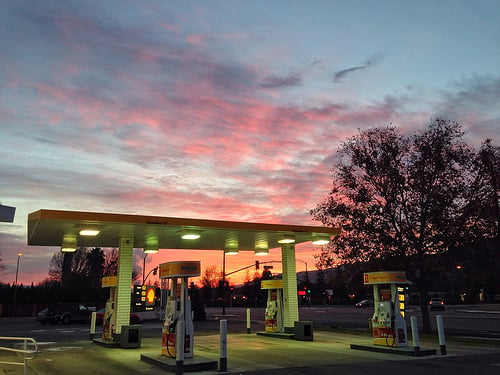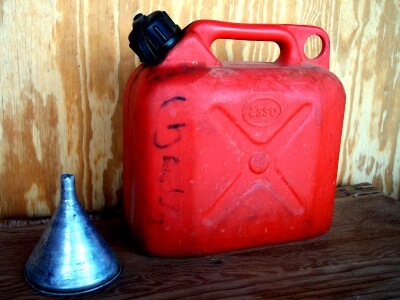How Stale Gas Can Affect the Performance of Your Car
So why does gas go bad? It all has to do with gasoline's chemical composition.

“Stale gas” is the term commonly used to describe gasoline that has degraded and lost a significant portion of its combustibility. The causes for this are pretty simple. Gasoline starts to show signs of degradation about 30 days into its life. It has been exposed to oxygen and other environmental "bad actors", and these actors cause chemical reactions to take place in the gasoline that lead to the formation of gums and varnishes that cause problems in engines.
This is the half-way scientific way to describe the problem. What does it look like to the average person? They want to know what are the symptoms of stale gas. This is a fair question because the average user isn’t going to examine the gas during different stages of its life. They’re going to fill their gas can, put it in their lawn mower or other equipment, and go off to use it. They know there’s a problem with the fuel when the equipment doesn’t run right. And this infers an important point – the problem of stale gas is one that’s most relevant to small equipment, not cars and trucks. The fuel you get at the gas station is cycled through quickly enough that you would never expect to have to deal with a stale gas problem in your vehicle.
Calling gasoline stale implies that it is old, that it has developed the problem over a long period of time. And this makes sense given that the symptoms of stale gas center on poor combustibility of the fuel. Maybe the engine won’t start or it sputters when it should be running like a charm. If the gasoline is old and stale, it will have lost a portion of its volatility. The lighter components of the gasoline (remember, gasoline is a mixture of different hydrocarbons) have probably evaporated off or disappeared. This causes the remaining gasoline to be less volatile and less able to burn as needed. Which means the engine won’t run as well.
If you have an ethanol blend gasoline like E10, then it’s just as likely that, if it’s old enough to be considered “stale”, it may well have undergone phase separation. If this is the case, you’ll definitely have combustibility issues because the gasoline will have lost octane value. It’s not uncommon to see a 3-4 point drop in octane value, which is enough to seriously impair an engine’s ability to run on that kind of fuel.
Preventing gas from become “stale” in storage comes down to storage conditions and treatment. Ideally, you’d like to use it up quickly but that’s not always possible.
So the only option is to enhance the fuel’s ability to resist the changes that come with age. Fuel stabilizers are essential options in the fight against stale gas because they stop the chemical reactions associated with turning gasoline fuel stale. And given the presence of ethanol fuels in the marketplace, using an ethanol stabilizer that controls phase separation is a key consideration. While there are a number of options for that, the best recommendation would be an ethanol stabilizer that does not contain alcohol. This limits the number of choices, but that's to be expected. Not all of them can be the best.

So why does gas go bad? It all has to do with gasoline's chemical composition.

When you’re asking the question ‘how do I fix bad gas in my car’, you’re talking about a different kind of situation than fixing bad stored fuel...

Gasoline doesn’t have as large a market for storage additives as diesel fuel because it’s not stored for as long periods of time. In the business...